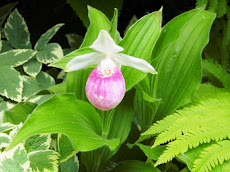Fish live in a limited volume of water and the quality of that water degrades over time. Fish waste, decayed plant materials, and uneaten food all break down and affect the water chemistry. If there are no water changes, the fish are slowly pickled, and although they will survive for some period of time as they acclimate to the increasingly toxic environment, it isn't possible to add any new fish, who will quickly die when exposed to poor water quality. Water changes don't mean emptying and scrubbing the tank, it means replacing an appropriate amount of water on a regular basis. Water from the same source, adjusted to a similar temperature, with the proper chemicals added to eliminate the ammonia or chloramines used by the city to kills bacteria (and fish as well!). If water changes are done regularly, it is safe to replace 90% of the water everyday if one desires. If the water changing has been put off for too long, it's necessary to do smaller amounts so that the change does not shock and kill the fish. I try to do 40% every two weeks on the larger established tanks containing adult fish. If I am dealing with a smaller tank (the water quality degrades more quickly), am growing out young fish, or trying to get adult fish to spawn, I do water changes at least weekly.
I've been fortunate to spawn a variety of fish, including domestic & wild Bettas, domestic & wild livebearers, Paradise fish, South & Central American cichlids, Tanganyikan cichlids, several kinds of Gobies & Gudgeons, catfish, and other less common species, such as Badis. Some species breed no matter what - I often joke that many kinds of cichlids could breed in Kool Aid, while others have never been successfully spawned in captivity. Some livebearers are very easy to breed, while others live out their lives without ever producing offspring, no matter what the fishkeeper tries. I particularly like wild livebearers, especially the ones that are extinct or endangered in the wild. Goodeids from Mexico are often victims of habitat loss and a significant number of species only exist in the aquariums of hobbyists.
Although many kinds of fish do just fine on dry flake food, all of them do better with the addition of some frozen or live foods, and some of them will only eat live foods. We often keep live blackworms (in the refrigerator) and they work well to get some species of cichlids to spawn. Ina the winter we can also keep live glassworms in the fridge. Some fishkeepers raise white worms & grindal worms, while microworm & vinegar eels are raised for tiny fry. Almost all fish love newly hatched baby brineshrimp, and they are almost essential for raising some kinds of fry. In the summer some fishkeepers collect (or even raise) mosquito larvae, and fishkeepers often raise tubs of daphnia. The live foods do add to the work involved in keeping fish, but they also increase the success rate in both keeping and spawning fish.
My 35 gallon pond was going to be used for spawning fish this summer - my skiffia (a species of goodeid) did well outdoors two years ago - but I decided instead to raise daphnia in the pond. I've raised it in 5 gallon buckets and 20 gallon aquariums, but decided the pond ought to provide a useful amount of live food. I was also given two bags of mosquito larvae yesterday, so the Betta picta dined in style. I checked to be sure that all the larvae were consumed, so I won't have a basement full of mosquitos in a few days.

The newest fry here are the Red-finned Halfbeaks, amongst my favorite fish. I have a reverse trio (two males and a female) and the female produces youngsters on a regular basis. Because the adults will eat the fry, I only get fry if I see them first. I could take mom out and let her spawn in a seperate tank or breeder box, but I'm not actually trying to breed them anymore. I just want enough to eventually replace the adults . My big Guppy tank has 3 young Halfbeaks, plus the 4 new babies that I rescued on Friday night. The adolescents swim with the Guppies & Corys that live in the tank, but the newborns have a small net tank that sits in the big tank, as they will be snack size for a couple of months. The oldest of the adolescents will soon be large enough to pick off Guppy fry, so he may move in with the adults soon - assuming he will be accepted. We shall see.
I've also got young Limia melanogaster (Black-Bellied Limias) and Limia vitatta (Cuban Limias). Both Limia species are colony breeders and the fry swim safely with the adults. That's also true of my little colony of Lamprologus multifasciatus - the baby Multis swim with their older sibs and parents, and like many cichlid species they are safe from predation. Another livebearer species that is doing well for me is the Giardinus metallicus, or Black-chinned livebearer There are always fry of various ages in that tank. The Goodeid tank is the home to Ataeniobius toweri (Blue-tailed Goodeids) & Illyodon furcidens and there are about 20 youngsters in that tank too - but until they are older I won't know for sure which species they are - or perhaps both species have spawned recently. The Xiphophorus alverazi a handsome wild swordtail species always have youngsters of various ages, and I have distributed a number of them in the area.
















































1 comment:
Hi,
I find your blog very interesting (former show dog owner). Reading today's post made me feel guilty...I'll do my tank's water changes tomorrow!
Post a Comment